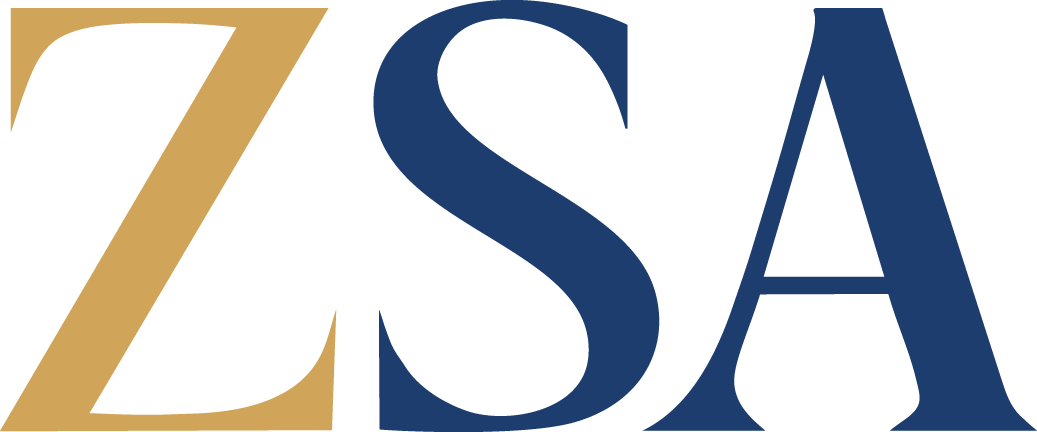8 Questions with Award-Winning General Counsel
John Mountain, SVP Legal, CCO & Corporate Secretary, NEI Investments
Interviewed by Warren Bongard, President & Founder, ZSA
1. Why did you decide to become a general counsel?
I had been a lawyer at an industry association for a number of years. I enjoyed the industry and wanted to stay within it. When I decided to leave the association, joining a member firm within the association was the most logical place to start. So I looked at its members and became General Counsel for one of them.
2. What role do you play in helping shape the corporate culture?
I think that a lot of the culture at my organization has been influenced by my direct involvement, in part because the company is compliance oriented and in part because we take our reputation seriously. My CEO and Board listen attentively and take my recommendations seriously.
3. How do you handle the reporting role to the CEO and the Board?
I have private meetings with the CEO every two weeks where we review issues and discuss ongoing matters. Because I am the Corporate Secretary, I also liaise with the Chairman of the Board quite regularly. As is often the case, the distinction between my various roles is not fenced off, and a lot of issues transcend the specific role. The CEO and I have developed a relationship where I act like a conduit between the Board and CEO on certain issues, and so I have developed my own relationship with the members of the Board.
At each quarterly Board meeting I give a formal Legal and Compliance Report. In addition, both the CFO and I support our Finance/Risk/Governance Committee as it is broader than just finance. I am also responsible for drafting the Board governance materials, under the direction of the Chair of that committee - we review the documents every year with a fine tooth comb. Because of this, I feel we have quite good governance standards.
4. How do you navigate risk management?
Risk Management is shared between me and the CFO. We have put together an extensive document which helps us identify risks from an organizational perspective. It is comprehensive and organized by subject matter and priority. We also prioritize the consequences, as high risk doesn’t necessarily have high consequences. This assessment helps us shape how to prioritize dealing with the risks. We discuss what controls are in place and do a residual risk assessment after controls are in place, and then go through the same assessment again. Quarterly updates given to our Finance/Risk/Governance Committee allows them to see what has moved and provide the opportunity to ask about emerging issues. We then take all our work to the full Board for review annually. The Board gets to vet the risks identified, the controls in place and the residual risk levels, and gets its own opportunity to decide if it is comfortable with the process.
5. What is the biggest professional challenge you have faced during your career?
Early in my career I felt that notwithstanding my reputation of being good at getting results in law and helping the industry, I was not seen as a business partner, but as a “lawyer” only. As a result, I obtained my Executive MBA. I don’t think I learned a lot on the practical level, but I better understood the theory behind how things operate and how to manage. I also benefitted from the “group” experience, something different than how lawyers are trained. This experience taught me how to trust people in the group setting and understand why business behaves the way it does.
6. What do you look for when making hiring decisions for your department?
I look for people who have passion. I think most people are skilled at a certain level: you don’t get the interview unless you have the basic skills. I therefore value people who will care about getting the result and who will contribute to the whole organization, who will ask good questions and take ownership; people who don’t see the work they do in isolation, but strive to understand its value to the organization, and to continually add value to the organization.
7. How do you handle the outside firm relationship with legal assignments?
Because of the nature of our organization, we go through a process of how much should be insourced vs. outsourced in respect of legal work. We outsource when we feel we don’t have enough resources internally and can’t justify hiring additional staff. We have one primary law firm supplier and if that supplier is conflicted, we then go to the second firm that we use. The main supplier is strong in the industry, and we feel that we get huge value in their competitive intelligence. For example, when something complicated arises, and we call our outside counsel, more often than not, this firm has already had experience in this situation before, thus adding great value.
8. What advice would you give to prepare for moving beyond the counsel office within the company?
I have intentionally chosen organizations that are small enough where I have an opportunity to effect change. I am fortunate enough that in a number of my jobs the company welcomed my input on issues that were not technically within my mandate. I have always had the chance to roll up my sleeves and get involved in things that a lawyer wouldn’t normally do, often because there wasn’t an employee already there doing it. I feel that this is the best way of learning your business. As a further benefit, it enables you to give much better legal advice.

